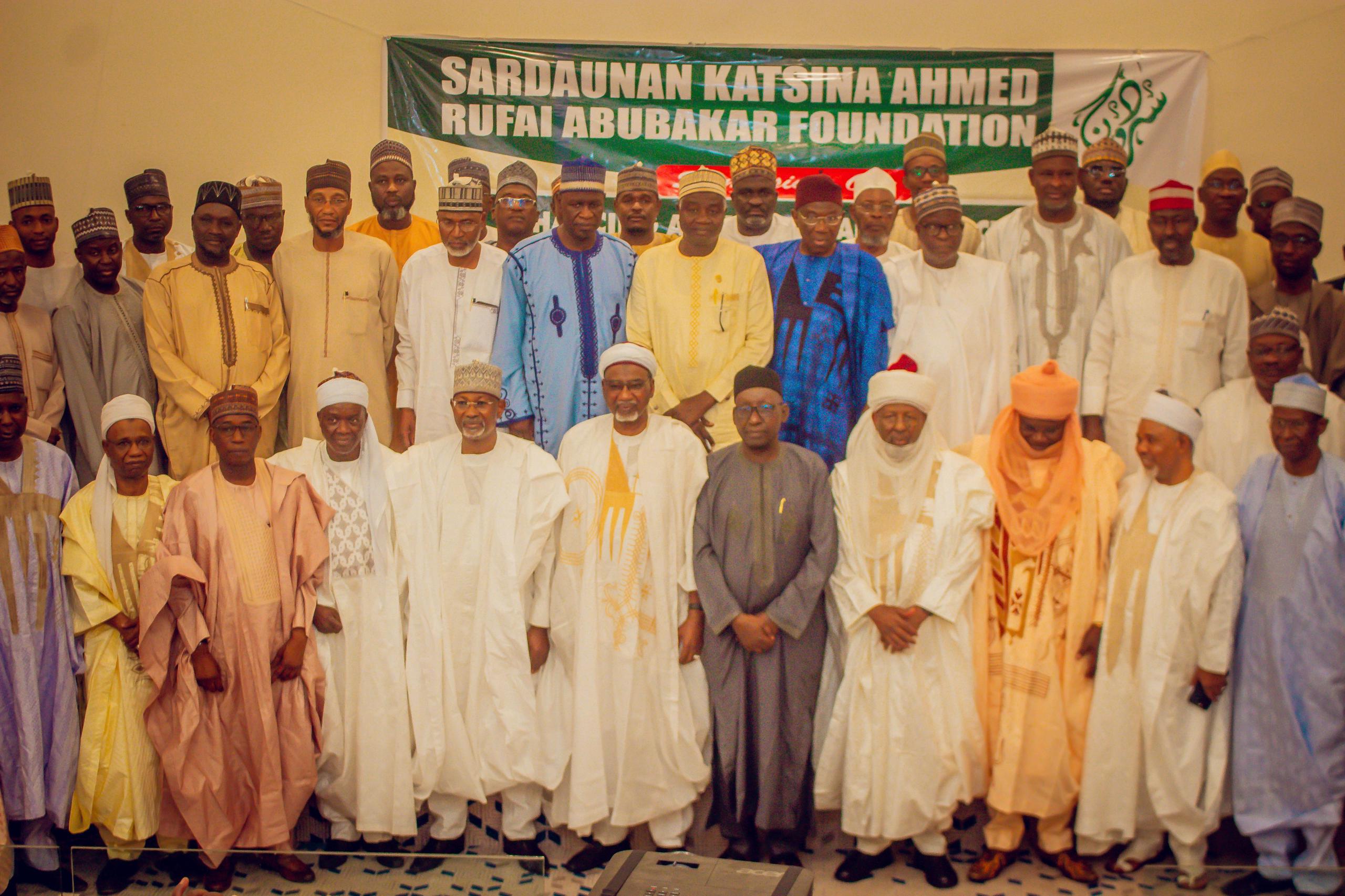From Fauziyya Lawal, Katsina
A national symposium on agriculture, food security and poverty alleviation has declared open on Tuesday July 8-9 2025 in Katsina, bringing together a high powered delegation of policymakers, researchers, farmers, traditional leaders and development experts from across Nigeria.
The two day event, organized by the Sardaunan Katsina Ahmed Rufai Abubakar Foundation, is being held in Katsina under the theme “Enhancing Agricultural Production and Value Chain Development for Sustainable Productivity, Food Security and Poverty Alleviation.”
Declaring the symposium open, the Katsina State Governor, Malam Dikko Umar Radda, represented by the Secretary to the State Government, Abdullahi Garba Faskari emphasized the centrality of agriculture to the state’s development strategy.
He described agriculture as both a moral and economic imperative, particularly in addressing rural poverty, youth unemployment and food insecurity. “Katsina State is committed to revamping agriculture through mechanization, irrigation and rural infrastructure,” Faskari said. He also noted the government’s investments in training and empowering youth in agricultural entrepreneurship, adding that the administration welcomes partnerships with organizations like the Ahmed Rufai Abubakar Foundation to complement state initiatives. “What we need is a coordinated national effort one that leverages the strengths of both government and civil society,” he added.
In his welcome address, the convener of the symposium and Chairman of the Foundation, Ambassador Ahmed Rufa’i Abubakar, the Sardaunan Katsina described the symposium as a deliberate effort to address the urgent challenges of food insecurity and rural poverty through sustainable agricultural transformation.
“I am honoured to welcome you all to this critical gathering,” he said. “This symposium seeks to examine practical and enduring strategies to achieve security and prosperity by developing agricultural value chains particularly across Northern Nigeria.”
Ambassador Abubakar noted that the gathering was not merely symbolic but part of a broader, long term vision by the Foundation to identify problems that demand collective national solutions. He emphasized the importance of partnerships between government, civil society and the private sector in responding to these challenges.
He recalled that the Foundation had previously initiated conversations around Nigeria’s cultural and historical context as foundations for development. “We believe strongly that nurturing the next generation through sound education and meaningful engagement is vital for Nigeria’s continued evolution as a leading force in Africa and beyond,” he said.
Ambassador Abubakar also highlighted the Foundation’s investment in practical initiatives including the establishment of a school and a technology hub in Katsina to complement government efforts in strengthening education as a pillar of peace and national progress.
With over 30 years of involvement in the agricultural sector, he further revealed the Foundation’s ventures under Firm Katsina Ltd, a registered corporate body focused on crop and orchard farming, livestock breeding and agro-processing. “Our operations include a modest milk processing factory, a 100 tonne maize flour mill and a 10 tonne animal feed mill,” he said, describing these investments as a humble yet committed contribution to the nation’s agricultural aspirations.
Ambassador Abubakar emphasized that agricultural transformation cannot occur in isolation and called for knowledge driven partnerships and investment in infrastructure, innovation and people. “It is our hope that the ideas generated in this forum will be translated into action concrete, community based programs that improve lives,” he concluded.
Delivering the keynote address, Dr. Engr. Umar Bindir, a distinguished agricultural engineer and policy expert, provided a broad yet detailed critique of the current state of Nigeria’s agricultural economy.
He highlighted the persistent gap between research institutions and rural farmers and criticized the underutilization of Nigeria’s vast arable land and human capital.
“Agriculture must move from being treated as a development concern to being run as a profitable business,” Dr. Bindir said.
He called for a national model that integrates innovation, smart technology and policy alignment with special focus on creating jobs for youth. “Nigeria’s agricultural renaissance will depend not on intentions but on investments in knowledge, infrastructure and people,” he concluded.
The Ahmed Rufai Abubakar Foundation known for its work in education, peace building and health, is now extending its vision to agriculture as a strategic enabler of national development.
Participants remain optimistic that the robust conversations will spark the coordinated actions Nigeria urgently needs to secure its food systems and economic future.


